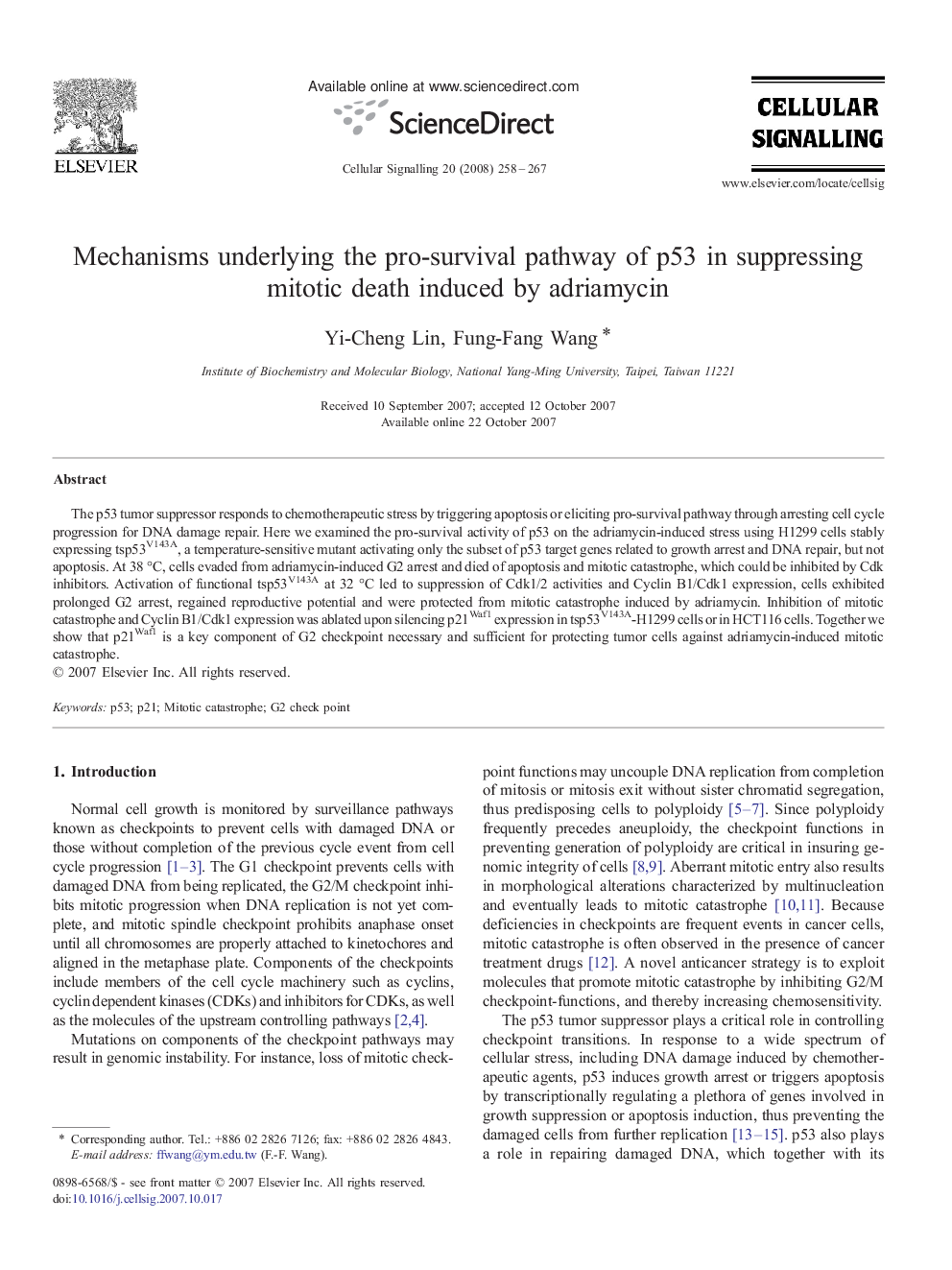| Article ID | Journal | Published Year | Pages | File Type |
|---|---|---|---|---|
| 1964512 | Cellular Signalling | 2008 | 10 Pages |
The p53 tumor suppressor responds to chemotherapeutic stress by triggering apoptosis or eliciting pro-survival pathway through arresting cell cycle progression for DNA damage repair. Here we examined the pro-survival activity of p53 on the adriamycin-induced stress using H1299 cells stably expressing tsp53V143A, a temperature-sensitive mutant activating only the subset of p53 target genes related to growth arrest and DNA repair, but not apoptosis. At 38 °C, cells evaded from adriamycin-induced G2 arrest and died of apoptosis and mitotic catastrophe, which could be inhibited by Cdk inhibitors. Activation of functional tsp53V143A at 32 °C led to suppression of Cdk1/2 activities and Cyclin B1/Cdk1 expression, cells exhibited prolonged G2 arrest, regained reproductive potential and were protected from mitotic catastrophe induced by adriamycin. Inhibition of mitotic catastrophe and Cyclin B1/Cdk1 expression was ablated upon silencing p21Waf1 expression in tsp53V143A-H1299 cells or in HCT116 cells. Together we show that p21Waf1 is a key component of G2 checkpoint necessary and sufficient for protecting tumor cells against adriamycin-induced mitotic catastrophe.
